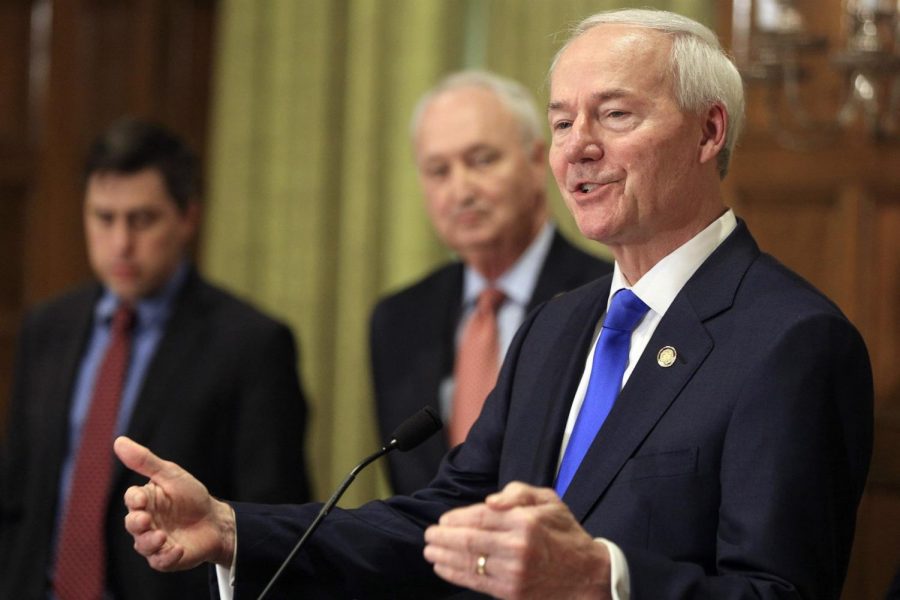Arkansas passes anti-transgender youth bill
Staton Breidenthal / The Arkansas Democrat-Gazette via AP file
Asa Hutchinson speaks at a daily press conference in Little Rock, Ark., on March 23, 2020.
Apr 19, 2021
Gov. Asa Hutchinson (R) of Arkansas made a surprising move last week when he vetoed a bill that would make it illegal for transgender minors to receive gender-affirming medication or surgery. According to The New York Times, Hutchinson’s veto was unexpected since the effort to restrict transgender people’s health care and participation in society is growing. He vetoed the bill because he received pleas from pediatricians, social workers and parents stating that such measures would cause harm to a community that is already vulnerable and at risk for depression and suicide.
“This bill will devastate transgender youth. Most psychologists know that allowing gender dysphoria to go untreated without transition will lead to terrible consequences,” said Elle Weber, the president of JCU’s LGBTQIA+ Allies.
Transgender minors who are already receiving treatment will have to stop could also have dire consequences, physically and mentally. Chase Strangio, who is the deputy director for transgender justice at the American Civil Liberties Union LGBT & HIV Project, told NBC News that the bill is “the single most extreme anti-trans law to ever pass through a state legislature.”
However, the House and Senate voted to override Hutchinson’s veto. According to The Associated Press, opponents of the bill have promised to sue to block the ban before it takes effect, which will be sometime in late July at the earliest. The sponsor of the bill ignored the opposition from medical groups, comparing the new measures to other restrictions Arkansas places on minors.
Hutchinson told The AP that does “hope that my veto will cause my Republican colleagues across the country to resist the temptation to put the state in the middle of every decision made by parents and health care professionals.”
This ban on transgender youth healthcare was enacted during a time where there are other bills targeting transgender individuals that have advanced in other states, such as Tennessee and Mississippi. In Arkansas, Tennessee and Mississippi the Legislature signed bills that prohibit transgender women and girls from competing on teams consistent with what gender they identify as. Hutchinson also signed a bill that allows doctors to refuse treatment to someone if it goes against moral or religious beliefs.
The Human Rights Campaign is America’s biggest LGBTQ rights group and has said that more than 100 similar bills have been filed in state houses around the country. That being said, another bill was proposed in Arkansas that would prevent schools from requiring teachers to refer to students by their preferred pronouns or titles has been proposed.
Rumba Yambú, director of Intransitive, a group that supports trans individuals in the state of Arkansa, said that they won’t stop fighting the bill and others like it.
Weber mentioned that she doesn’t identify as transgender and is purely speaking as president of the LGBTQIA+ Allies, not on the behalf of the transgender community.
When asked what people could do to help the transgender community, Weber responded, “The first thing people can do is learn about the bill and spread around why it is so harmful to the community. The second thing allies of the community should do is call and write letters to the Arkansas legislature and encourage them to take back the harmful bill.”













